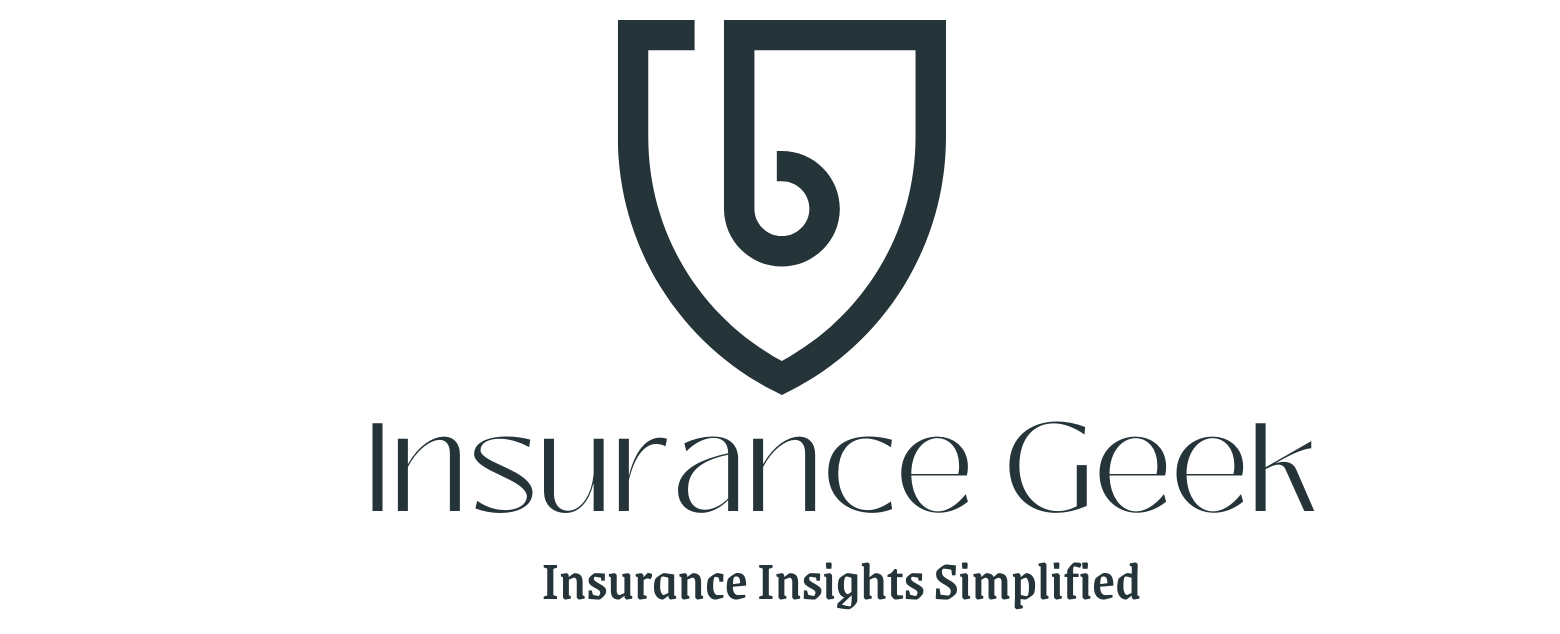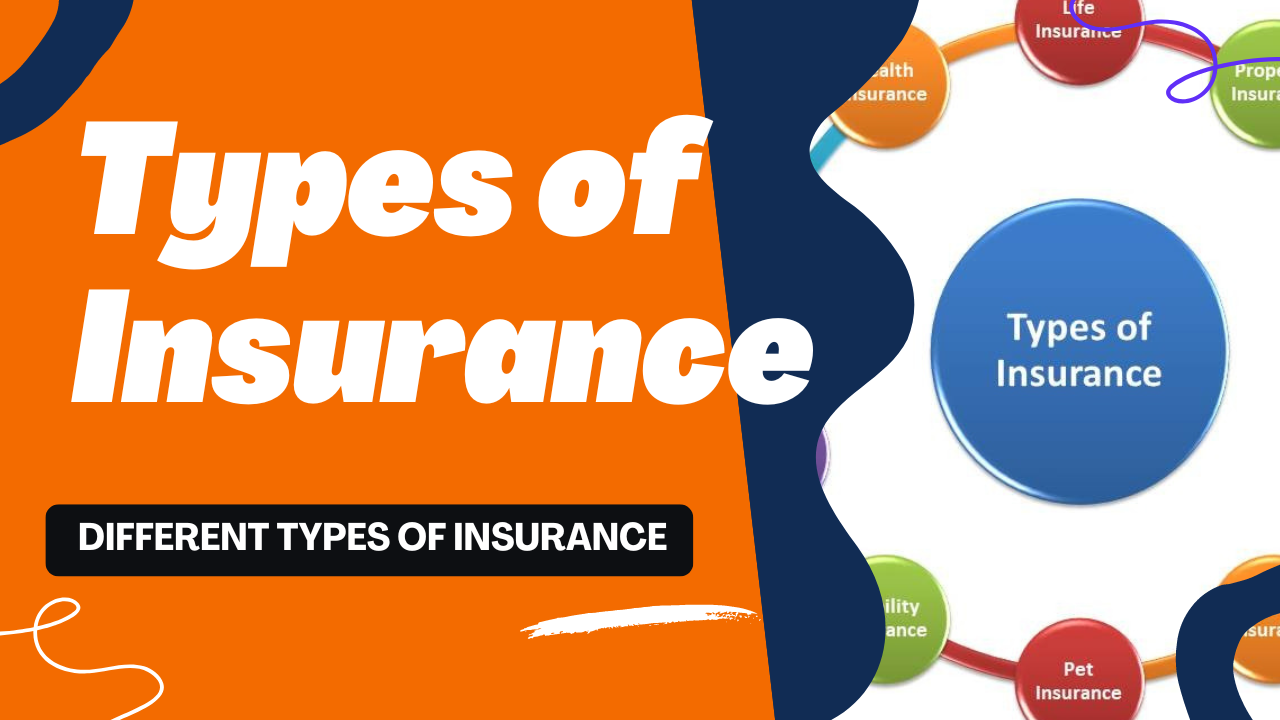Types of Insurance Available
1. Introduction
Insurance is a financial product that provides protection against potential future losses or damages. It involves paying a premium to an insurance company in exchange for a promise to cover certain costs if an insured event occurs. Insurance plays a crucial role in mitigating risks, offering peace of mind, and ensuring financial stability in the face of unforeseen circumstances.
2. Health Insurance
Health insurance is designed to cover medical expenses for illnesses, injuries, and other health conditions. It comes in various forms, catering to different needs and preferences.
Individual Health Insurance
This type of insurance covers a single person. It’s ideal for those who do not have access to employer-sponsored health plans.
Family Health Insurance
Family health insurance provides coverage for an entire family under one policy, making it a convenient option for households.
Group Health Insurance
Typically offered by employers, group health insurance covers employees and sometimes their families. It’s usually more affordable than individual plans.
Critical Illness Insurance
This insurance pays a lump sum if the insured is diagnosed with a specified critical illness, such as cancer or heart disease.
Disability Insurance
Disability insurance provides income replacement if the insured is unable to work due to a disability. It can be short-term or long-term.
Long-term Care Insurance
This insurance covers the costs of long-term care services, such as nursing home care or home health care, which are not covered by regular health insurance.
Medical Savings Accounts (MSAs)
MSAs are savings accounts that allow individuals to save money for medical expenses on a tax-deferred basis.
Health Maintenance Organizations (HMOs)
HMOs offer health services through a network of providers. They typically require a primary care physician referral for specialist care.
Preferred Provider Organizations (PPOs)
PPOs provide more flexibility in choosing healthcare providers and do not require referrals for specialists.
Exclusive Provider Organizations (EPOs)
EPOs are similar to PPOs but require members to use the network’s providers for coverage, except in emergencies.
Point of Service (POS) Plans
POS plans combine features of HMOs and PPOs. They require a primary care physician referral but allow out-of-network care at a higher cost.
Short-term Health Insurance
This insurance provides temporary coverage for gaps in regular health insurance, typically lasting up to a year.
Health Insurance Marketplace
The marketplace offers a variety of health insurance plans, often with subsidies for eligible individuals, making coverage more affordable.
3. Life Insurance
Life insurance provides financial protection to beneficiaries upon the death of the insured. It helps cover expenses and maintain financial stability for the insured’s family.
Term Life Insurance
Term life insurance provides coverage for a specific period, usually 10, 20, or 30 years. It’s generally more affordable than permanent life insurance.
Whole Life Insurance
Whole life insurance offers lifelong coverage and includes a cash value component that grows over time.
Universal Life Insurance
Universal life insurance provides flexible premiums and death benefits, along with a cash value component that earns interest.
Variable Life Insurance
This type of insurance combines life insurance with investment options. The cash value can be invested in various funds.
Variable Universal Life Insurance
Variable universal life insurance offers the investment options of variable life insurance and the flexibility of universal life insurance.
Survivorship Life Insurance
Also known as second-to-die insurance, this policy covers two people and pays out after both have passed away. It’s often used for estate planning.
Mortgage Life Insurance
Mortgage life insurance pays off the remaining mortgage balance if the insured dies, ensuring the home is paid for.
Group Life Insurance
Offered by employers, group life insurance provides coverage for employees and sometimes their families. It’s often less expensive than individual policies.
Burial Insurance
Burial insurance, also known as final expense insurance, covers funeral and burial expenses, helping to ease the financial burden on families.
Accidental Death and Dismemberment Insurance
This policy provides additional benefits if the insured dies or suffers severe injuries in an accident.
4. Auto Insurance
Auto insurance protects against financial loss in case of accidents, theft, or other damages involving vehicles.
Liability Coverage
Liability coverage pays for damages and injuries to others if the insured is at fault in an accident.
Collision Coverage
Collision coverage pays for damages to the insured’s vehicle resulting from a collision, regardless of fault.
Comprehensive Coverage
Comprehensive coverage protects against non-collision-related damages, such as theft, vandalism, or natural disasters.
Personal Injury Protection (PIP)
PIP covers medical expenses and lost wages for the insured and passengers, regardless of fault in an accident.
Uninsured/Underinsured Motorist Coverage
This coverage protects against damages caused by a driver who lacks sufficient insurance.
Gap Insurance
Gap insurance covers the difference between the actual cash value of a vehicle and the amount still owed on a loan or lease if the vehicle is totaled.
Classic Car Insurance
Classic car insurance is tailored for vintage and collectible cars, offering agreed value coverage and specialized protections.
Commercial Auto Insurance
Commercial auto insurance covers vehicles used for business purposes, providing protection for business-related liabilities.
5. Home Insurance
Home insurance provides financial protection for homeowners against damages and losses to their property and belongings.
Homeowners Insurance
Homeowners insurance covers the home structure, personal property, and liability for accidents that occur on the property.
Renters Insurance
Renters insurance protects personal belongings and provides liability coverage for renters.
Landlord Insurance
Landlord insurance covers property owners who rent out their homes, providing protection against property damage and liability.
Condo Insurance
Condo insurance covers personal property and liability within a condominium unit, as well as improvements made to the unit.
Mobile Home Insurance
Mobile home insurance provides coverage for mobile or manufactured homes, including the structure and personal property.
Flood Insurance
Flood insurance covers damages caused by flooding, which is typically not included in standard homeowners insurance policies.
Earthquake Insurance
Earthquake insurance covers damages caused by earthquakes, another peril not typically covered by standard policies.
Umbrella Insurance
Umbrella insurance provides additional liability coverage beyond the limits of homeowners, auto, and other policies.
6. Travel Insurance
Travel insurance covers various risks associated with travel, providing peace of mind and financial protection.
Trip Cancellation Insurance
This insurance reimburses prepaid, non-refundable expenses if a trip is canceled for covered reasons.
Travel Medical Insurance
Travel medical insurance covers medical expenses incurred while traveling, often including emergency medical evacuation.
Emergency Evacuation Insurance
This insurance covers the cost of emergency medical evacuations, which can be extremely expensive.
Baggage and Personal Effects Insurance
Baggage insurance covers lost, stolen, or damaged luggage and personal belongings during travel.
Accidental Death and Flight Accident Insurance
This coverage provides benefits in case of accidental death or serious injury during a flight or while traveling.
Travel Insurance Plans
Comprehensive travel insurance plans combine several types of coverage, including trip cancellation, medical, and baggage insurance.
7. Business Insurance
Business insurance protects businesses from financial losses due to various risks and liabilities.
General Liability Insurance
General liability insurance covers claims of bodily injury, property damage, and personal injury related to business operations.
Property Insurance
Property insurance covers damages to business property, including buildings, equipment, and inventory.
Business Interruption Insurance
Business interruption insurance covers lost income and operating expenses if a business is forced to close temporarily due to a covered event.
Workers’ Compensation Insurance
Workers’ compensation insurance provides benefits to employees who suffer work-related injuries or illnesses.
Professional Liability Insurance
Also known as errors and omissions (E&O) insurance, this coverage protects professionals against claims of negligence or mistakes in their services.
Product Liability Insurance
Product liability insurance covers claims related to injuries or damages caused by products sold or manufactured by a business.
Commercial Auto Insurance
Commercial auto insurance covers vehicles used for business purposes, similar to personal auto insurance but tailored for business needs.
Business Owner’s Policy (BOP)
A BOP combines general liability and property insurance into one package, often at a lower cost than purchasing separate policies.
Cyber Liability Insurance
Cyber liability insurance protects against financial losses resulting from data breaches, cyberattacks, and other cyber incidents.
Employment Practices Liability Insurance (EPLI)
EPLI covers claims related to employment practices, such as wrongful termination, discrimination, and harassment.
Directors and Officers (D&O) Insurance
D&O insurance provides liability coverage for company directors and officers against claims of wrongful acts in their corporate roles.
8. Pet Insurance
Pet insurance helps cover veterinary expenses for pets, providing financial support for pet owners.
Accident-only Pet Insurance
Accident-only insurance covers veterinary costs resulting from accidents, such as injuries from car accidents or falls.
Comprehensive Pet Insurance
Comprehensive pet insurance covers a wide range of veterinary expenses, including accidents, illnesses, and preventive care.
Pet Wellness Plans
Pet wellness plans cover routine veterinary care, such as vaccinations, check-ups, and dental cleanings.
9. Disability Insurance
Disability insurance provides income replacement if the insured is unable to work due to a disability.
Short-term Disability Insurance
Short-term disability insurance provides benefits for a limited period, typically up to six months, for temporary disabilities.
Long-term Disability Insurance
Long-term disability insurance provides benefits for extended periods, often until retirement age, for long-lasting disabilities.
Supplemental Disability Insurance
Supplemental disability insurance offers additional coverage on top of existing disability insurance policies.
10. Specialty Insurance
Specialty insurance covers unique or specific risks that are not typically included in standard insurance policies.
Wedding Insurance
Wedding insurance covers expenses related to the cancellation or postponement of a wedding, as well as liability and property damage.
Event Insurance
Event insurance provides coverage for various types of events, protecting against cancellation, liability, and property damage.
Identity Theft Insurance
Identity theft insurance covers expenses related to restoring one’s identity after it has been stolen.
Kidnap and Ransom Insurance
Kidnap and ransom insurance provides financial protection against the costs associated with kidnappings and ransom demands.
Prize Indemnity Insurance
Prize indemnity insurance covers the cost of prizes in promotional contests, such as hole-in-one contests at golf tournaments.
11. Conclusion
Insurance is a vital tool for managing risk and ensuring financial stability. By understanding the different types of insurance available, individuals and businesses can make informed decisions to protect themselves and their assets. Choosing the right insurance policies is crucial for securing peace of mind and safeguarding against potential financial hardships.
4o

